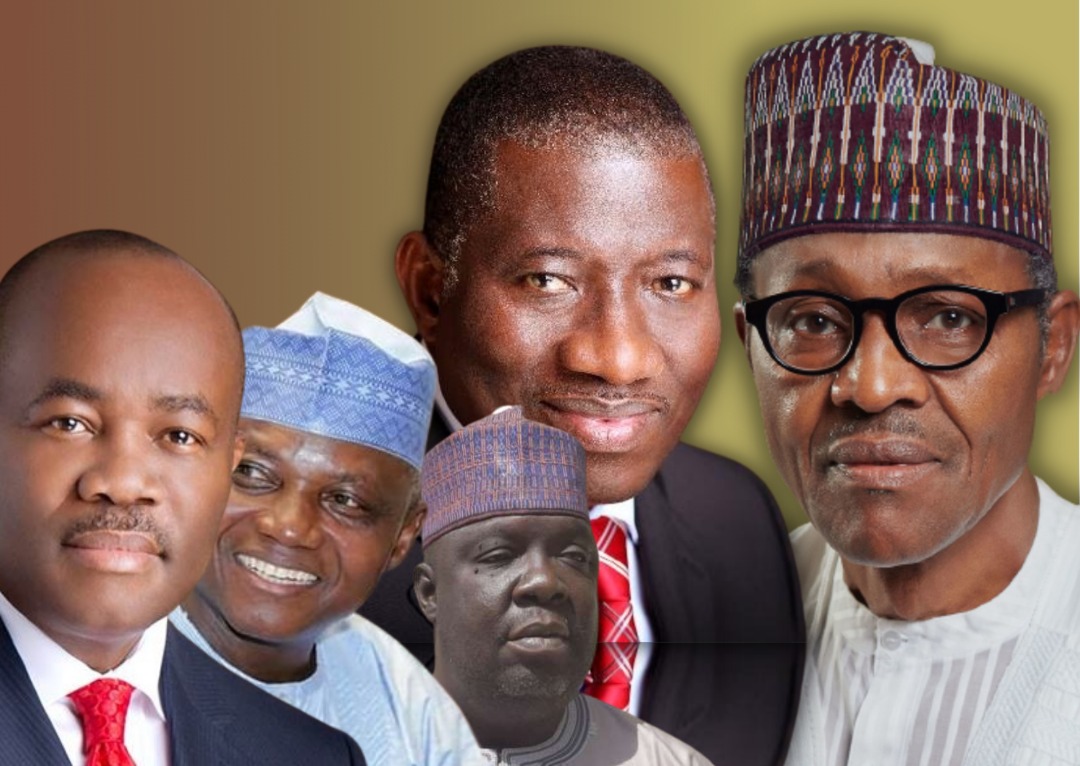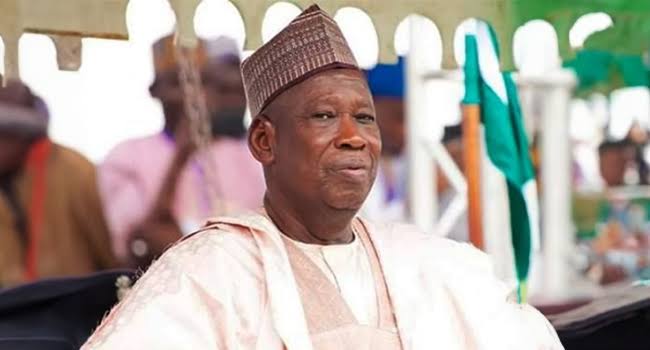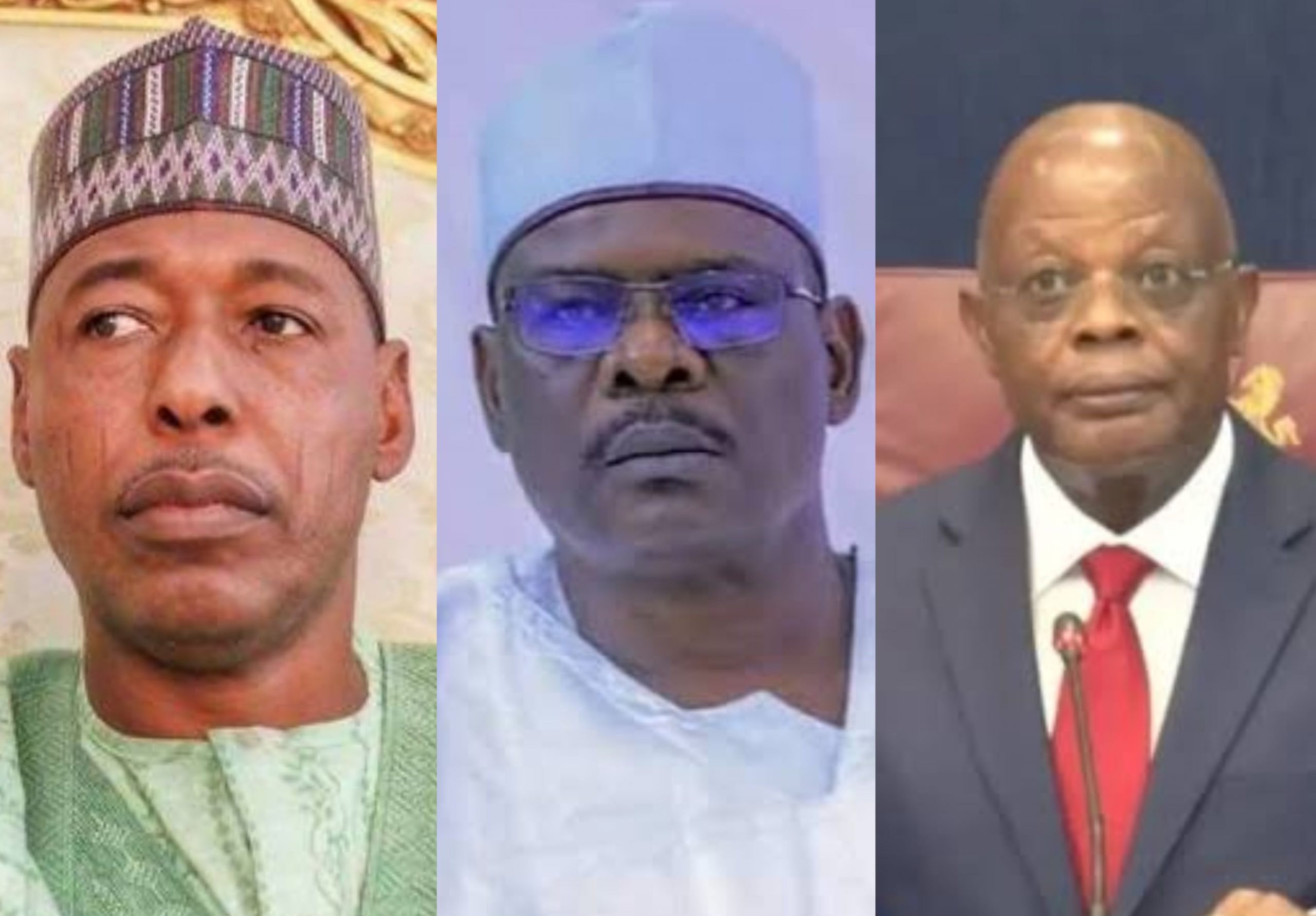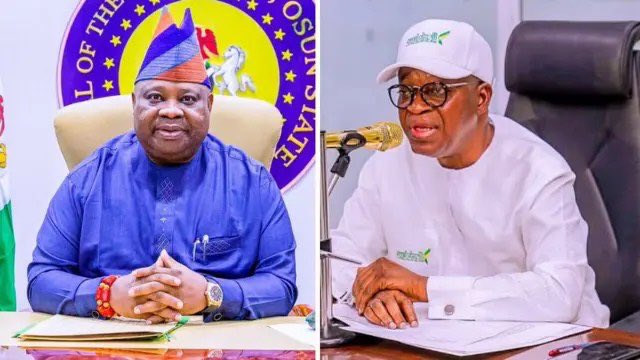In this week Politics Roundup, we looked at the final report of the forensic audit of the Niger Delta Development Commission (NDDC) to the Federal Government and other interesting stories.
We also considered the attack on Amnesty International by the presidency and other stories that elicited reactions.
As usual, we draw attention to these stories not just to refresh your memories but to point out some of their implication to our national development and why they call for concerns.
1. NDDC’s can of worms
The Minister of Niger Delta Affairs Minister, Godswill Akpabio, on Thursday, September 2, submitted the final report of the forensic audit of the Niger Delta Development Commission (NDDC) to the Federal Government.
The report conveyed in sacs was received by the Attorney General of the Federation and Minister of Justice, Abubakar Malami, who represented the President.
According to Malami, NDDC got N6 trillion budgetary allocation within eight years operated no fewer than 362 accounts with various commercial banks without proper reconciliation.
He said, “The Federal Government is particularly concerned with the colossal loss occasioned by uncompleted and unverified development projects in the Niger Delta region, in spite of the huge resources made available to uplift the living standard of the citizens.
“We have on record over 13,777 projects, the execution of which is substantially compromised. The Federal Government is also concerned with the multitudes of Niger Delta Development Commission’s bank accounts amounting to 362 and lack of proper reconciliation of accounts.”
Implications
Nigerians were not surprised by the outcome of the forensic audit report of the NDDC. Revelations from the report only show the devastating effect of corruption in the country and the need for the menace to be killed before it kills the country.
It is left to be seen if the Buhari’s APC government, perceived to be a safe haven for corrupt persons, will go beyond receiving the report and decrying the rot in the commission, to ensure that those who perpetrated the act face consequences for their action.
2. Temperamental presidency

The presidency on Wednesday, September 1, did not disappoint on what Nigerians have known it for; its attitude of attacking anyone who criticises policies and actions of President Muhammadu Buhari’s administration.
The attack this time was on Amnesty International. The temperamental presidency, in a statement by Buhari’s spokesman, Garba Shehu, accused the international rights organisation of supporting a terrorist organisation and, therefore, has no legal right to remain in Nigeria.
The attack came because Amnesty International, in a recent report said, “Nigerian security forces’ attempts to clamp down on Indigenous People of Biafra (IPOB) militants have led to arbitrary arrests, detentions, enforced disappearances and extrajudicial executions in the Southeast and Niger Delta area of Nigeria.”
But Shehu replied and said, “Amnesty International’s latest salvo at Nigeria is but more of the same. Again, they have decided to side with terrorists, before the liberty of those they injure, displace and murder.
“Speaking the language of universal human rights, Amnesty International deploys it only in defence – even outright promotion – of those that violently oppose the Federal Government of Nigeria. Parroting the line of Nnamdi Kanu and IPOB, a proscribed terror organisation, they work to legitimise its cause to Western audiences. This puts them in bad company.”
Implications
The attack on Amnesty International paints a picture of an administration that is intolerant of informed views.
It is unfortunate that Buhari’s presidency often attacks persons and institutions with opposing views rather than address the views and concerns raised by them.
3. PDP’s beg

A delegation of the leadership of the People Democratic Party (PDP) on Tuesday, August 31, visited former President Goodluck Jonathan in his Abuja residence to appeal to him not to abandon the party. They also begged him to be more active in PDP’s affairs.
The delegation, which was led by the Acting National Chairman of the PDP, Yemi Akinwonmi, was said to have informed the former president of the current storm in the party and seek his advice on the best way the opposition party can exit the crisis threatening its existence.
“The South West team were with the former President to appeal to him not to abandon the party. They also appealed to him to show more than a passing interest in the affairs of the party by becoming more actively involved in the activities of the party. The former President assured the team that he would not abandon the party,” a source privy to the meeting hinted.
Implications
As a party in crisis and in serious search of peace, the PDP’s visit to Jonathan to seek his advice is worthwhile.
However, there are feelings by some Nigerians that the PDP may have been troubled by the former president’s perceived romance with the APC, and the speculations that the ruling party is planning to hand its 2023 presidential ticket to Jonathan.
4. Dangerous bandits
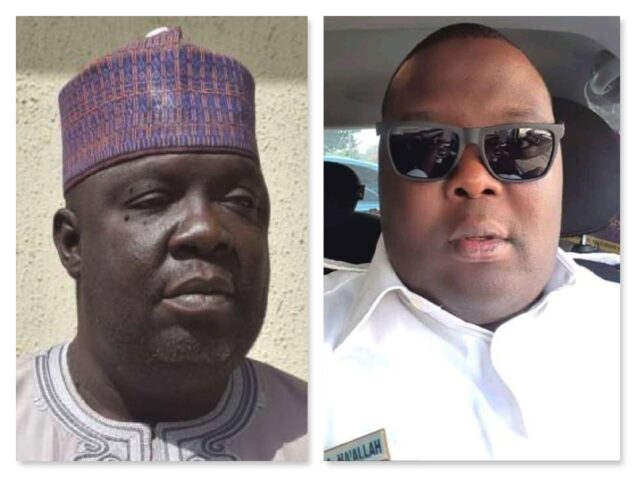
Bandits on Sunday, August 30, attacked and killed a pilot, Captain Abdulkarim Bala Na’Allah, the eldest son of Senator Bala Na’Allah, in his residence in Kaduna.
An aide to the senator, Malam Garba Mohammed, said about the incident:
“Suspected Kaduna bandits kill Captain Abdulkarim Bala Na Allah, the first Son of Senator Bala Na’Allah, in his Malali GRA Residence Kaduna today (Sunday)”
Implications
The attack and killing of Senator Na’Allah’s son by rampaging bandits emphasises the fact that no one is safe in Nigeria any longer.
The event points to the more reason playing politics and pampering criminals in the country by those in the corridors of power and those seeking for power must be jettisoned forthwith and the criminals confronted frontally.
5. Buhari’s red card

President Muhammadu Buhari on Wednesday, September 1, sacked Mohammed Sabo Nanono, Minister of Agriculture and Rural Development, and Engr. Sale Mamman, Minister of Power.
President Buhari redeployed Dr Mohammad Mahmood Abubakar, Minister of Environment, to assume office as the Minister of Agriculture & Rural Development, while Engr. Abubakar D. Aliyu, Minister of State, Works & Housing was redeployed to take over as the Minister of Power.
The president’s spokesman, Femi Adesina, quoting Buhari said:
“As we are all aware, change is the only factor that is constant in every human endeavour and as this administration approaches its critical phase in the second term, I have found it essential to reinvigorate this cabinet in a manner that will deepen its capacity to consolidate legacy achievements.”
Implications
Buhari’s action is important as it enables fine-tuning of governance and helps to ensure performance.
The sacking of the ministers over their supposed non-performance will serve as a signal for other cabinet members to either effectively do their assigned duties or face a similar fate as their dismissed colleagues.
